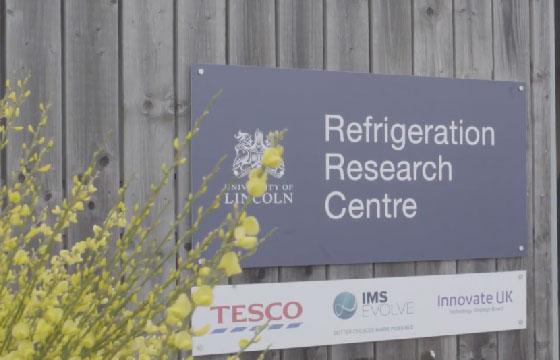
IMS Evolve is developing an innovative Demand Side Response solution for food retailers that will balance supply and demand, in order to both stabilise and optimise the National Grid.
The shift from power plant reliance to renewable generation systems for energy supply has driven significant change in the energy market. Although a positive advancement towards eradicating unabated coal power, the transformation has presented the National Grid with a new challenge of inconsistent load provision by the renewable systems, in addition to the increasing pressure of escalating demands on the ageing network. Embracing innovative technology, such as the Demand Side Response solution within the food retail sector that IMS Evolve are developing, will balance supply and demand in order to both stabilise and optimise the Grid.
Understandably, the food retail industry to date has been wary to embrace solutions other industries have been incentivised to adopt due to the potential risks such projects pose to operations – primarily product quality and food safety. However, with food refrigeration accounting for over 14 per cent of the UK’s energy consumption, a solution that addresses both retailer concerns and the compelling and growing demands of the National Grid has the potential to enable significant transformation within the energy market.
Alongside a consortium consisting of Tesco, Lincoln University and FRPERC, with co-funding from the Government's Innovation Agency, Innovate UK, IMS Evolve is two years into a comprehensive, collaborative project to develop a software solution that not only mitigates operational risk but also delivers additional value.
The solution will take an enhanced approach that dynamically balances the demands of the National Grid by harnessing the energy load requirements inherent within large refrigeration estates. The solution provides a sophisticated refrigeration management solution using real-time machine data, that is proven to ensure food safety and sustain food quality through increased visibility and management over the performance and efficiency of assets within the estate. With this increased insight, retailers can utilise opportunities to shift energy consumption on demand, achieving both scheduled action and responsive events with the confidence that food safety and quality will not be compromised.
A live testing environment was constructed as part of the project, exactly replicating a Tesco store, installed with refrigeration cases of varying makes, models and controller types and comparative environmental conditions. ‘The Barn’ has allowed IMS Evolve to accurately test the technology from both a speed and mechanical perspective to ensure the solution meets National Grid requirements, to a food quality and safety perspective to eradicate operational risk and retailer uncertainty. With the ability to test the effects of DSR events on real produce in context of machine performance, the software has been developed with a candidacy algorithm to assess the live status of an asset, and whether it qualifies as a safe participant in an event.
This versatile solution can be applied to any energy-rich environment and can enable other energy shifting initiatives, such as Peak Shaving, to deliver additional benefits to customers.
Strategic applications like these address the challenges faced by the National Grid both short and long-term –answering today’s demands whilst providing
To see The Barn and learn more about the project, you can watch Innovate UK's Knowledge Transfer Network interview with IMS Evolve's Edward Porter and Lincoln Universities Professor Simon Person here: KTN CASE STUDY